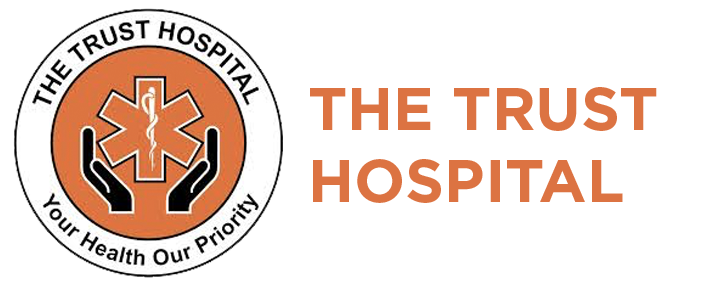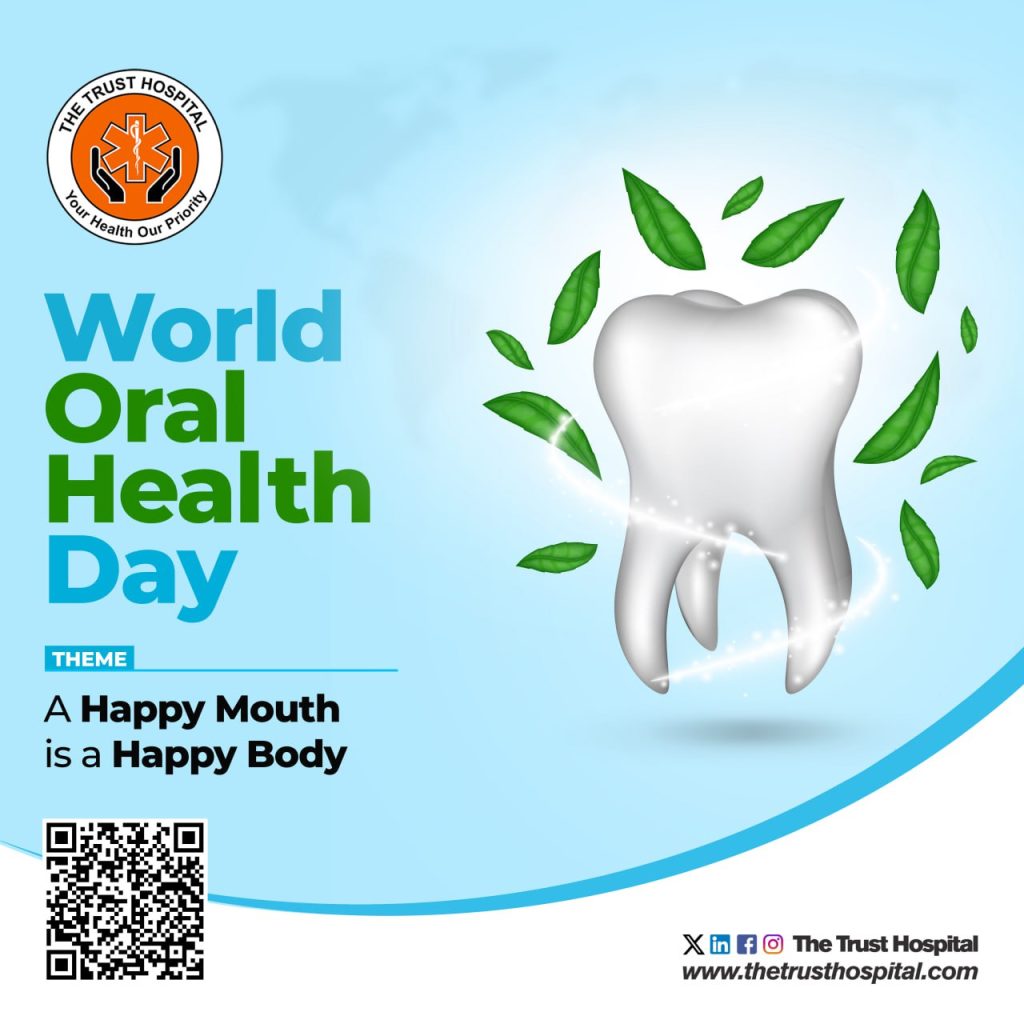The world oral health day (WOHD) is celebrated worldwide on the 20th of March every year. On this day, focus is placed on the importance of oral health to our general health, our overall well-being, and our satisfactory quality of life. Dr Kofi Osei-Tutu, a Consultant Specialist Dental Surgeon (Restorative dentistry) of The Trust Hospital walks us through the rudiments of Oral Health. Take time to read, gather some nuggets, and pass by any of our hospitals or clinics for a dental check-up.
Good oral health is not something we should take lightly as individuals. The ramifications of unattended, or delayed attention to our oral health needs are diverse and significant. It is increasingly evident that poor oral health impacts negatively on our general well-being, as such every step necessary must be taken to safeguard it, especially since we are living longer and desire to do so satisfactorily.
The good news is that the common ailments that afflict our mouths are largely preventable. We can have the upper hand by being proactive. Sadly, most individuals visit their oral health professional only when they have pain somewhere in the mouth. Unfortunately, dental diseases are usually advanced by that time and so require extensive and or advanced treatments. The severe pain felt, and the prospect of more than a single visit to the dentist to fully repair and restore dental structures, cause some to resort to self-medication or quick ‘fix’ options like extractions.
A happy mouth is a happy body. This is the overarching theme for the current WOHD commemoration. This succinctly summarizes the hand in glove relationship between oral health and general health. A happy mouth is indeed possible, and sustainable too. To help you along this journey is your oral healthcare professional, who will work in tandem with you to educate and empower you as you walk the journey of implementing good strategies towards protecting your oral health.
Proactive oral healthcare steps include having regular personal six-monthly checkups at the dental office, sticking to your home oral hygiene selfcare regimen decided by yourself and your oral health professional (OHP), reporting any oral health concerns that you encounter promptly to you OHP, and assisting the young and elderly in our families to take these same steps.
Children and the elderly may not have the required dexterity to adequately carry out brushing and flossing of teeth. The main reason for cleaning our teeth twice daily and flossing, is to undo bacterial plaque formation. Bacterial plaque forms on both natural tissues in the mouth ie hard and soft structures and dental prosthesis. It is a thick coat of varied types of oral bacteria mixed with organic scaffold derived both naturally from saliva and bacteria metabolism and adhered very firmly onto oral tissues.
When bacterial plaque that forms naturally on teeth is not disturbed and eliminated frequently by brushing and flossing of teeth, they mature and ecologically select for groups of bacteria that are very effective in breaking down simple sugars (found commonly in foods/drinks that are sweet to taste). Unfortunately, the byproduct of the bacterial breakdown of these sugars is organic acids.
It is important to recognize that all this breakdown and acid generation activity happens in a focused area on the tooth surface, unto which bacteria plague adheres. Our teeth are highly calcified hard structures and are therefore very susceptible to demineralization ie loss of calcified tissue, which is felt and seen as holes in teeth.
Dental plaque can also get hardened by ions found naturally in our saliva, making it impossible to dislodge with the bristles of our brush. Such accumulations can be seen along the gum margins bordering the neck of the teeth. This hardened plaque is called calculus. Calculus serves as a platform for more plaque accumulation, leading to irritation of the neighboring gum tissue and loss of bone support for teeth. This is a silent process that progressively leads to loss of teeth as they become too shaky.
Persistent inflammation around these shaking teeth (Periodontitis) and bleeding gums (Gingivitis) due to bacterial build-up, has been shown to affect the development of babies in our pregnant women due to the body-wide effect of the described inflammation. Management of diabetes is also impaired when there is this widespread persistent inflammation in the mouth as described. Planned professional dental cleaning as part of your routine six monthly visits is essential to remove calculus and unreached dental plaque.
The thought of nurturing a happy mouth should make the carrying out of oral hygiene practices at home less of a drudgery. Our oral hygiene routines can be infused with fun, example we can brush to a short favorite music track and do our brushing with the young ones in the family so we can supervise them. Making it fun means we are less likely to skip it, plus we will look forward to it every day.
Other ways of making our mouth happy include avoiding behaviors and dietary habits that damage structures within it. We should avoid frequent exposure of our teeth to acidic foods (not to be confused with acids from bacteria activity) eg soda drinks and homemade beverages that have a low pH (usually sour tasting), report clenching of teeth and grinding of teeth to your OHP so you are assisted (not doing so will lead to progressive wear of all your teeth with resultant pain and sensitivity) and avoid opening bottles with your teeth! Something that frequently leads to self-inflicted fractures of teeth.
In conclusion, a happy mouth is only a dental checkup, toothbrush/fluoride-containing toothpaste, and floss away, a happy mouth is also facilitated by good teamwork between individuals and their OHP’s. Be proactive! Walk into a dental clinic now, for a checkup to secure your happy mouth

About The Trust Hospital Company Limited
The Trust Hospital Company Limited is a well-known healthcare provider that is highly regarded for its exceptional healthcare services, advanced facilities, and skilled medical staff. With over 31 years of experience, the hospital is committed to providing quality healthcare services that are customer-centric and utilize the latest technology to enhance stakeholder value. The Trust Hospital offers a wide range of medical services, including general medicine, surgery, pediatrics, obstetrics, and gynecology, orthopedics, ophthalmology, dermatology, cardiology, and neurology, oncology, dialysis among others. The hospital also provides emergency care and critical care services across its 4 hospitals and 5 clinics located in the Greater Accra region of Ghana. The Trust Hospital is dedicated to sustainability, professionalism, teamwork, innovation, customer focus, and excellence. Choose The Trust Hospital for top-notch medical care.
SPICE-UP- The Trust way!








